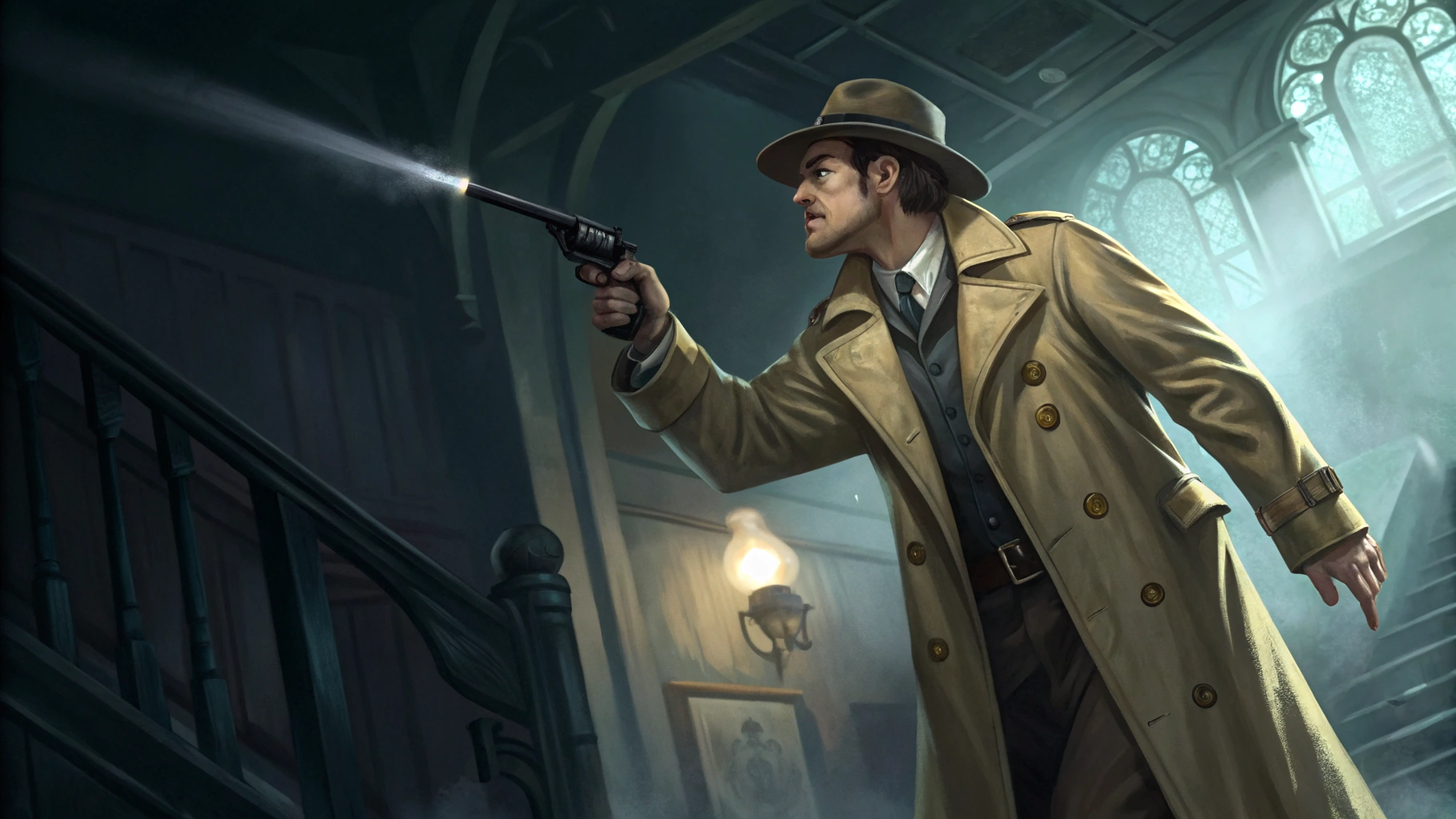Monterey “Jack” Montgomery is one of the most exciting investigators in Arkham Horror: The Card Game. Known as a daring archaeologist and treasure hunter, he brings a unique blend of intellect, agility, and resourcefulness to any campaign.
His ability to gain resources or draw cards based on movement makes him highly versatile and fun to play. Whether exploring ancient ruins or escaping terrifying monsters, Jack thrives when constantly on the move.
Players who enjoy flexibility and creative strategies will find his deckbuilding options rewarding. This introduction sets the stage for understanding why Monterey Jack is a fan favorite in the Arkham Horror LCG universe.
Character & Mechanics Overview
Jack’s key trait lies in his mobility-based ability: at the end of your turn, if Jack began the round one location away from his current position, you may gain either 1 resource or draw 1 card; and if he began two or more locations away, you get both benefits. This ability directly supports two of the most valuable commodities in the game—resources and card advantage—depending on what you need most in the moment.
Stat-wise, Jack starts with Will, Intellect, Combat, and Agility of 1 / 4 / 2 / 5, reflecting his scholarly roots (high Intellect) and nimble nature (high Agility). He has modest health (8) and sanity (6) (ArkhamDB)—making him relatively fragile, especially against heavy enemy or horror threats.
His deckbuilding options lean heavily into Rogue (level 0) and Seeker (level 1–5), plus Neutral cards (level 0–5), with an option for up to five extra Seeker cards (level 0). This hybrid access makes him uniquely versatile but perhaps less powerful than dedicated specialists.
Strategic Role & Playstyle
Jack thrives when consistently on the move. His ability incentivizes travel, synergizing beautifully with cards such as Pathfinder, Eon Charts, Shortcut, and Scout Ahead to maximize his gain per round. Boards like those in Innsmouth Conspiracy or Edge of the Earth—where Jack’s mobility is more than thematic—really let him shine.
He’s not limited to one task; he can investigate (thanks to high Intellect), evade enemies (due to high Agility), or generate tempo and resources—making him a creative solution in unpredictable scenarios.
However, Jack’s low Willpower and Combat make him vulnerable. He benefits from avoiding direct combat or focusing on controllable, evasion-based strategies, with backup support from allies or spells for damage when necessary.
As a campaign investigator, Jack’s ability to draw cards or gain resources each turn speeds up deck evolution and card upgrades. His flexibility in deckbuilding allows him to adapt to scenario needs—building more along Rogue evasion or Seeker clue-grab packages as needed.
What weaknesses should I watch out for with Jack?
Monterey “Jack” Montgomery’s biggest weakness is his very low willpower, which makes him vulnerable to treacheries and horror effects. Cards that test willpower can easily overwhelm him if not planned for. His sanity pool is also on the lower side, so horror damage can be dangerous. Combat is another weak area, as his attack power is not strong enough to reliably defeat enemies. To manage these weaknesses, include allies, healing, and cards that boost or mitigate willpower tests.
Tips & Considerations
| Aspect | Recommendation |
|---|---|
| Map Movement | Prioritize location-hopping using movement cards to maximize ability activation. |
| Card Economy | Use his ability flexibly: clutch draw when low on cards, resource when economy is tight. |
| Allied Support | Pair with cheap combat/evasion allies or heals to offset low Willpower/Combat. |
| Deck Building | Balance Rogue and Seeker cards to cover weaknesses—e.g., include healing or containment. |
| Scenario Choice | Play Jack in wide, varied maps with movement demands—he’s least effective in narrow or static layouts. |
Conclusion
Monterey “Jack” Montgomery stands out as a flexible and adventurous choice for players who love exploration and fast-paced strategies.
His movement-based ability offers consistent rewards, making every turn feel engaging and impactful. While his low willpower and combat can be a challenge, smart deckbuilding and ally support can cover these weaknesses.
Jack’s hybrid Rogue-Seeker access makes him adaptable to many campaigns and playstyles. Whether solo or multiplayer, he adds excitement and creativity to any team. For those seeking an investigator who blends speed, intellect, and fun, Monterey Jack is a perfect fit.
Frequently Asked Questions (FAQs)
1. Who is Monterey “Jack” Montgomery?
He’s a Rogue-Seeker investigator introduced in the Edge of the Earth expansion. An archaeologist-turned-treasure hunter with a flair for movement and resource/card generation.
2. What makes Jack unique mechanically?
His ability grants resources and/or card draw based on how far he moved from his starting location each turn. It rewards proactive movement.
3. What are Jack’s starting stats and vulnerabilities?
He has stats of Will/Intellect/Combat/Agility at 1/4/2/5, health 8, and sanity 6. He excels in intellect and agility but is vulnerable to horror and direct combat.
4. Which cards should pair well with Jack?
Movement cards like Pathfinder, Shortcut, Scout Ahead, and utilities like Eon Charts amplify his ability. Cheap evasion and clue-gathering cards also pair well.
5. What deckbuilding restrictions does Jack have?
He primarily accesses Rogue level 0 and Seeker level 1–5 cards, plus Neutral cards. He can also include up to five additional Seeker level 0 cards.
6. What’s his ideal playstyle?
Keep moving—gain cards or resources flexibly based on need. Evade enemies, gather clues, and avoid direct firefights. He works best in big or varied maps.
7. In what campaign scenarios does Jack excel?
Campaigns with broad maps and movement demand—like Innsmouth Conspiracy or Edge of the Earth—play to his strengths. He’s less efficient in tight, chokepoint-focused scenarios.
8. How should I compensate for his low Willpower and Combat?
Use allies or spells for defense/healing. Focus on evasion and clue-gathering rather than combat. Cards that prevent horror or damage help maintain his longevity.
9. Is he good for solo or multiplayer?
Jack’s flexibility in solo makes him a valuable one-man show—drawing cards or gaining resources every turn powers tempo. In multiplayer, he can function supportively, adapting to partners’ needs.
10. How does Jack evolve across a campaign?
His recurring advantage from movement makes deck upgrades quicker. With XP, you can add stronger Rogue or Seeker tools to shore up his weaknesses or enhance his agility-based engine.










